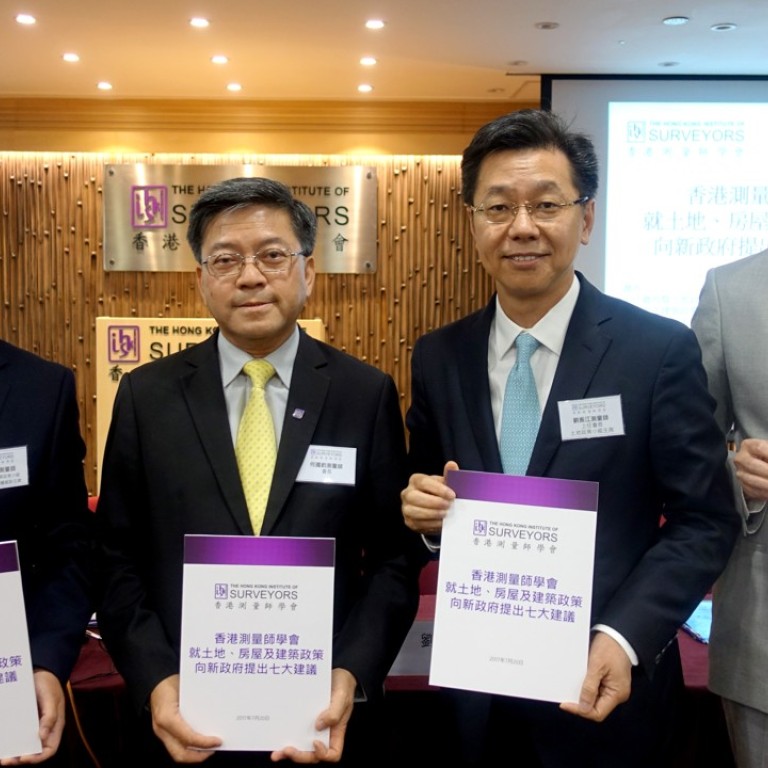
Lay down law over subdivided flats for Hong Kong poor, group says
Surveyors warn safety and hygiene should always come first in floated scheme to help thousands in unsuitable accommodation
The poor may live in government-approved subdivided flats once interim design and construction requirements are laid down, according to the Hong Kong Institute of Surveyors.
Its reaction follows a pilot scheme recently floated by housing minister Frank Chan Fan that would allow non-governmental organisations to operate approved flats to help some of the 200,000 people stuck in unsuitable accommodation.
The institute wants authorities to come up with guidelines on partitions, drainage, fire safety and ventilation at such flats.
“These are short-term interim housing needs, we cannot deny the reality that there are people living in hazardous conditions. This is not lowering living standards, but safety and hygiene should always come first,” said Vincent Ho Kui-yip, chairman of the group’s building policy panel.
There is no legal definition of a subdivided flat, but the term is commonly used to describe cases where a flat is partitioned into two or more self-contained cubicles. Many conversions infringe building regulations and pose fire safety and structural risks.
According to the government, there were nearly 200,000 people in 88,000 subdivided flats in 2015. About 57,100 of those households, 65.2 per cent of the total, lived in 75 sq ft to 140 sq ft units.
Ho said it was possible to partition flats without breaking the rules, as long as each unit was not subdivided into too many rooms.
Although details of the pilot scheme have yet to be announced, most flats would come from tenements in urban areas, possibly leased out by landlords and property investors to NGOs at a discounted market price.
The institute also urged the government to formulate a long-term policy targeting existing substandard subdivided flats.

